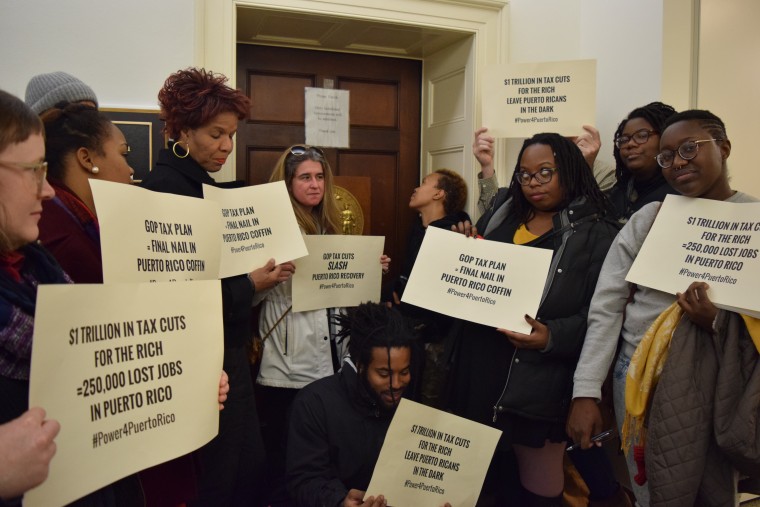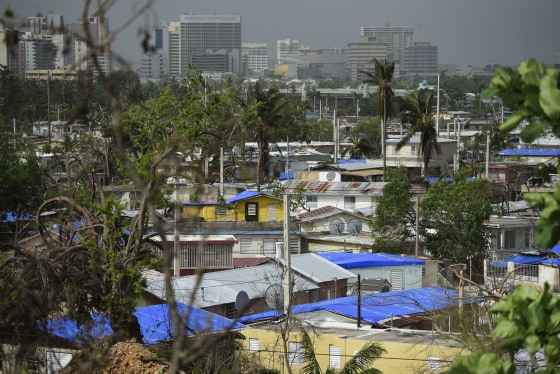A coalition of Puerto Rican and Latino groups told members of Congress any tax increases on U.S. corporations operating in the island would devastate an already battered economy.
The group #Power4PuertoRico went to the offices of Sen. Marco Rubio, R-Fla., as well as the offices of Sen. Orrin Hatch, R-Utah, and House Speaker Paul Ryan, R-Wisc., as congressional negotiators hammered out a tax bill they hope to sign into law next week.
"Puerto Rico is under the U.S. flag and after the hurricane and fiscal crisis, the last thing we need is a hurricane full of punitive and unnecessary taxes on P.R.," said Federico de Jesus, a consultant and lobbyist and former Puerto Rico government official.
"We’re not wasting any chances to take a message to Congress that Puerto Rico is a unique case in terms of taxes," he told NBC News after the meeting.

At issue are several tax proposals; the House proposal included a 20 percent excise tax on companies manufacturing under "foreign" jurisdictions. Puerto Rico was included in that definition, even though its citizens are American citizens and Puerto Rico is a U.S. territory. As a territory, Puerto Rico is taxed differently than states. Puerto Rico does not pay federal income taxes ,but does pay federal payroll taxes such as Medicare and Social Security.
"If this becomes law," said Rep. Nydia Velázquez (D-NY) in a recent statement, "you can expect to see more than 200,000 manufacturing jobs disappear from the Island. And the government of Puerto Rico could lose one-third of its revenue."
The Senate bill included proposals for a 12.5 percent tax on "intangible assets" like a patent produced in Puerto Rico or a minimum of a 10 percent tax on companies' profits abroad.
The group's visit follows a meeting that Puerto Rico's Gov. Ricardo Rosselló and several other island officials held with Rubio on Wednesday. “Rubio made a commitment to review the language of the federal tax reform in the conference committee,” Rosselló said in a press release. Rubio's home state, Florida, has seen the arrival of more than 200,000 Puerto Ricans who have fled the conditions in the island, including a lack of electricity almost three months after the storm.
Before Hurricane Maria caused catastrophic damage, Puerto Rico was reeling from a financial crisis and massive debt. Though there are several factors that have contributed to the island's current financial situation, economists attribute the phasing out of a tax exemption bill on U.S. companies as one of the triggers that led to Puerto Rico's long recession. Several U.S. companies and manufacturers reduced their operations and their investments, leading to job and revenue losses.
The worry is that additional taxes would cause another wave of retrenchment on the part of U.S. companies.
Gretchen Sierra-Zorita, a co-founder of the National Puerto Rican Agenda, said the tax reform bill as drafted would be the "end of Puerto Rico as we know it."
“Puerto Rico's economy will never recover from the catastrophe of Hurricane Maria or the 11-year recession that preceded it," said Sierra-Zorita.


